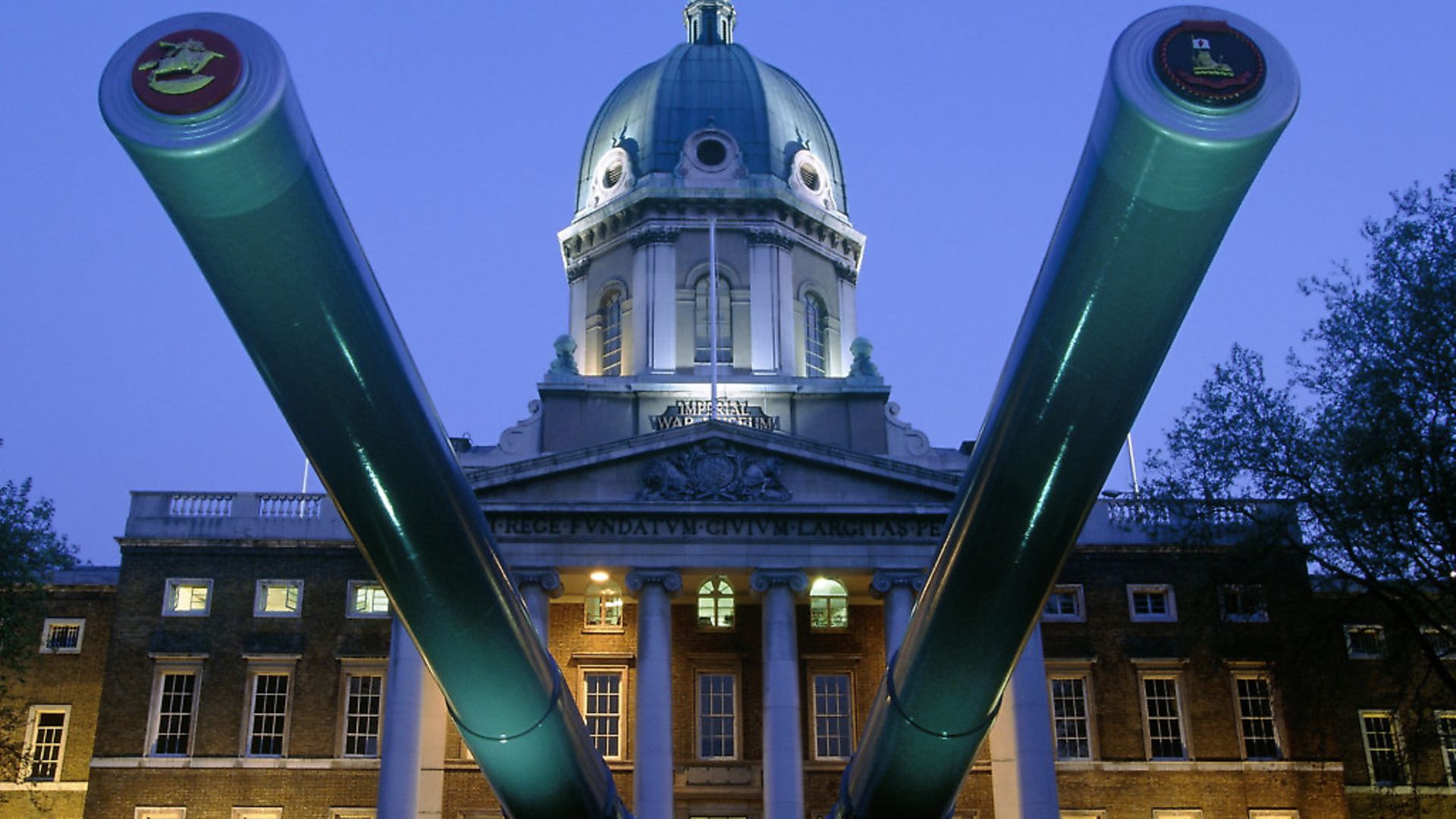
WILL SELF is left pondering the impact of the coronavirus crisis on his night-time visions.
On my night time promenades through south London I often find myself in the purlieu of the Imperial War Museum, close to Waterloo Station. Some might surmise from the pair of 15-inch naval guns set in front of this gaunt, neoclassical edifice that it was purpose-built to house a collection of superannuated death-metal – but the truth is yet more disturbing. In fact, between 1815 and 1930 it was psychiatric patients who were corralled beneath its etiolated copper-sheathed dome, for this was the site of the Bethlem Royal Hospital, aka ‘Bedlam’. A peripatetic institution, originally located near Bishopsgate in the City, over the centuries it’s schlepped to Moorgate, then south of Waterloo – and finally to the deepest south: a green-field site near West Wickham.
The Imperial War Museum still feels a little crazy, what with its vast guns levelled on the pub opposite – and its surrounding gardens, which, up until the pandemic struck, were frequented by many rough sleepers. But in the 1840s, when an insomniac Charles Dickens patrolled these streets, it must have seemed considerably more disturbing – sufficient, at any rate, to engender in the writer this strange epiphany: ‘Are not the sane and the insane equal at night as the sane lie a dreaming? Are not all of us outside this hospital who dream; more or less in the condition of those inside it, every night of our lives? Are we not nightly persuaded, as they daily are, that we associate preposterously with kings and queens, emperors and empresses, and notabilities of all sorts? Do we not nightly jumble events and personages and times and places, as these do daily?’
I can’t be alone in having experienced a fillip to my dream life these past few weeks – and as Dickens rightly observed, the realms of the oneiric and the psychotic share a highly porous border. When I was young there used to be regular surveys of the British that revealed a majority of the male population had had sex with the Queen while they slept – a preposterous association indeed. The population may now be both ageing and increasingly gerontophiliac, but I’d wager that in common with me, both sexes have been experiencing yet more apocalyptic visions recently than Elizabeth Windsor shimmying out of a cerise tent-dress by Norman Hartnell.
That lover of littler girls, Vladimir Nabokov, said: ‘Recount a dream – lose a reader,’ but surely this depends – at least in part – on the dream? A few nights ago, I found myself standing at my bedroom window in bright evening sunlight, aware simultaneously that I was dreaming, and that my four children and my partner were with me, all of us staring fixedly at the coruscating disc. As we watched, the sun split down the middle vertically, and the left-hand side plummeted into the ocean that had mysteriously covered the Brixton area. All at once a huge steamy cloud, reeking of ozone, boiled towards us. I sniffed it judiciously, and turning to the family said: ‘I’m afraid that’s it: the world’s come to an end…’
At least, that’s how the minatory vision appeared to me upon waking – but in truth, I don’t believe the dreamer dreams the dream at all; rather, I think the conscious mind assembles the dream narrative upon waking, desperate as it is to make sense of these crazy ideas and impressions: the cloven sun, the hissing sea, the matter-of-fact Gotterdammerung. Because let’s face it, Freudians, sometimes a cigar is just a cigar – while an apocalypse is definitely an apocalypse. We’ve all been awaking to the same double-take on reality for weeks now: one crusty eye un-gumming, we survey the duvet-padded cell of our reclusion, and remember – yet again – that the new normal is anything but.
In discussion with the family, I pondered not the meaning of my dream – which was blindingly obvious – but its surreally real mechanics: if the sun were to split in half, the half that fell into the sea would have to shrink massively – indeed the shrunken-half-sun would be proportionately as small in relation to the Earth as a single coronavirus virion is in relation to the human body. (If you don’t believe me – do the math!) But while this all seemed straightforward – further analysis returned me to the Freudian couch: ‘How did the dream make you feel?’ My partner asked, in cod-psychotherapeutic tones. I reflected for a moment: the dream had certainly been terrifying, yet I’d awoken feeling a quiet sense of self-satisfaction. ‘And why was that?’ My partner probed further.
‘Well,’ I conceded, ‘Freud believed all dreams were about wish-fulfilment – and as you know, I’ve been obsessed that the world was about to end due to the climate emergency for a year or more; so although the proximate cause may have been different, nonetheless, as I watched the half-sun plunge into the ocean, I experienced the tremendous pleasure known as I-told-you-so…’










